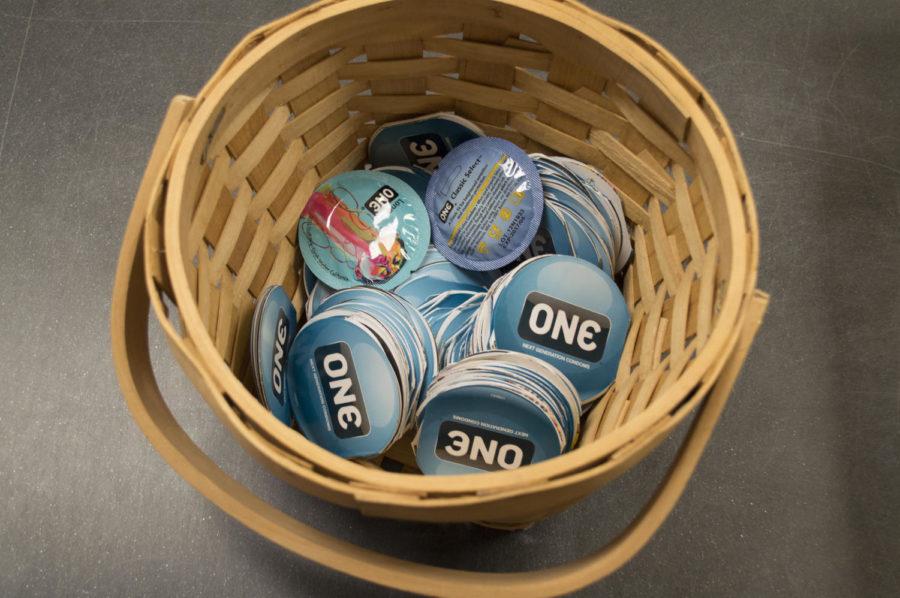Organizations attempt to teach students about sexual health, prevention
February 4, 2015
With a looming cloud of campus alerts and whispers of sexual assault floating through the air, now more than ever is an opportune time to take advantage of the services that organizations like the Prevention Services Department and Planned Parenthood provide.
Every student comes to college with a different sexual knowledge base. Some students have been preached the “talk” countless times, while others have grown up avoiding any discussion regarding sexual activity.
Organizations like Planned Parenthood and the Prevention Services Department are seeking to advocate to ISU students that understanding sexuality and options when it comes to sexual activity is a crucial component to physical, mental and emotional health.
“It’s awkward to talk about,” said Samantha Lawlor, sophomore in political science. “But it matters.”
Maybe the reason for awkwardness is simply the misunderstanding of what sexual health really is. When students associate the terms “sexual health” with avoiding the negative consequences of sex, dodging STDs and preventing unwanted pregnancy, it is easy to forget that sexual health is synonymous to overall health and well-being.
The Prevention Services Department knows this, and is rallying with efforts to make condoms attainable and available throughout campus.
“We do give out a lot condoms that are accessible at many places on campus. And it’s all free, everything’s free,” relayed Prevention Specialist Brian Vanderheyden.
Free condom tables are controlled by a team of student volunteers who provide condoms, as well as lubricants and dental dams to students from 10 a.m. to 2 p.m. Wednesdays at UDCC and Thursdays at the Memorial Union.
Last semester, the Prevention Services Department distributed more than 70,000 condoms to students throughout the ISU campus during “Free Condom Wednesday and Thursday.”
However, the majority of condom distribution came from online orders, where students were able to privately order condoms in bulk and pick them up from the Prevention Services office.
“There is a barrier to [Free Condom Wednesday and Thursday]. Some people are uncomfortable approaching a table and taking [condoms] and we know that, which is why we offer online orders for more privacy,” Vanderheyden said.
To compliment prevention efforts on campus, the Thielen Student Health Center offers multiple services for sexually active students, including sexually transmitted infection testing, treatment and prevention, birth control prescriptions and counseling and emergency contraception.
Students can also call a registered nurse to answer any questions regarding their sexual health and receive confidential advice.
The ISU campus isn’t the only location students can search for more resources and information on these topics. Ames Center – Planned Parenthood also serves the Ames community by providing reliable information and advice on a wide range of human sexuality topics for people ages youth through senior citizen.
“Overall, 45.5 percent of people using [Planned Parenthood] are using our services for contraception,” reported Daniel Hoffman-Zinnel, director of Education and Leadership at Planned Parenthood.
Hoffman-Zinnel admitted that he would like to see students use the education on a wide spectrum of topics they provide such as relationship health and communication. He understands that it “takes two to tango” and desires to see students focus more attention on building healthy relationships and normalizing sexuality from receiving medically accurate information.
“The more we learn about our sexuality, the easier we are able to identify our needs and wants and communicate them with our partners to keep ourselves safe,” said Hoffman-Zinnel.
To combat the uncomfortable and awkward stigma of the Planned Parenthood facility, students are now able to make appointments online.
When it comes down to it, college is a time for growth and discovery, and while not every student will set forth to discover their sexuality, many will.
These services provide students with the information and resources to protect themselves from the heart-wrenching discovery of an STI, the torment of waiting for pregnancy test results or the pain of an intimate moment when your resolved “no” was ignored, if only we get over the stigma and take advantage of them.







